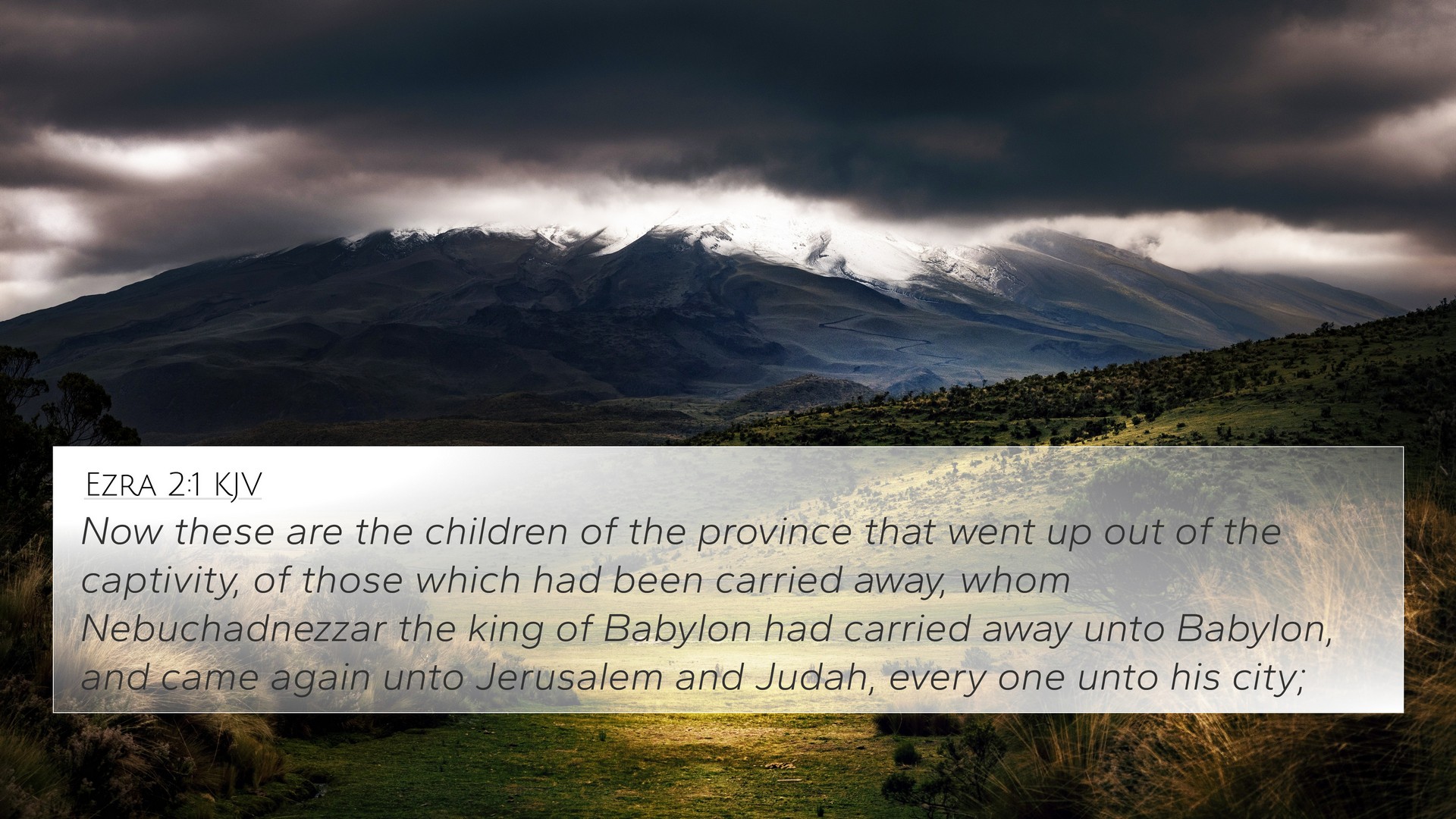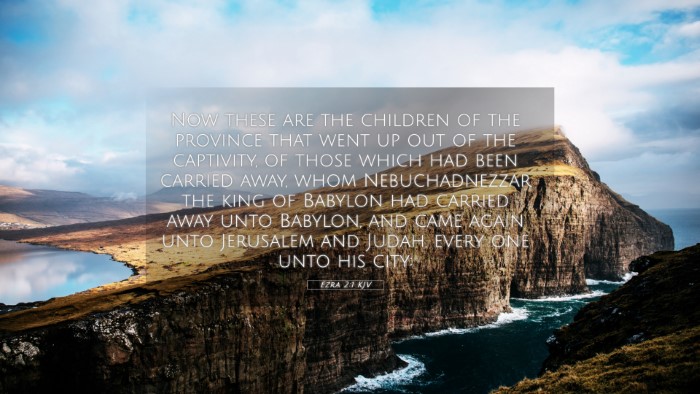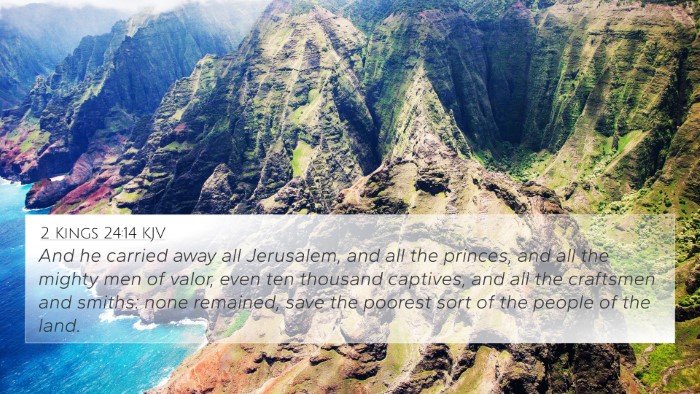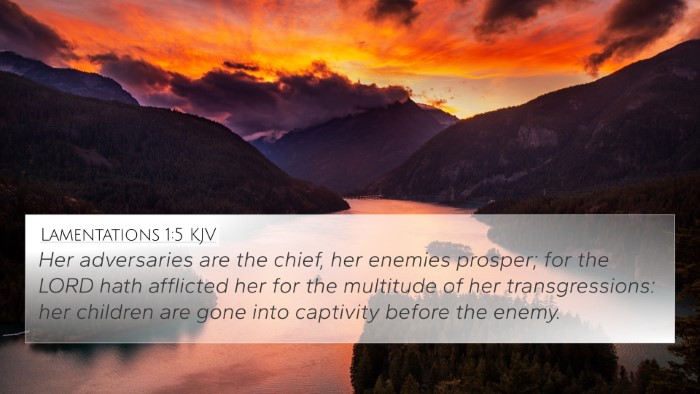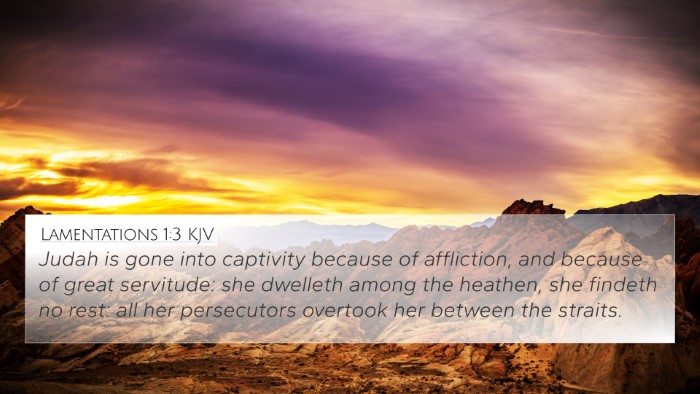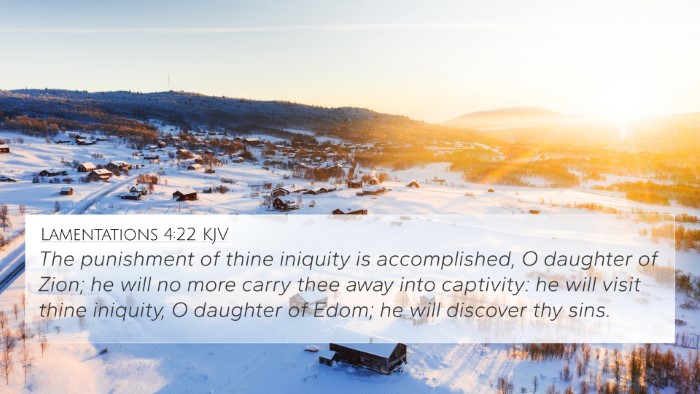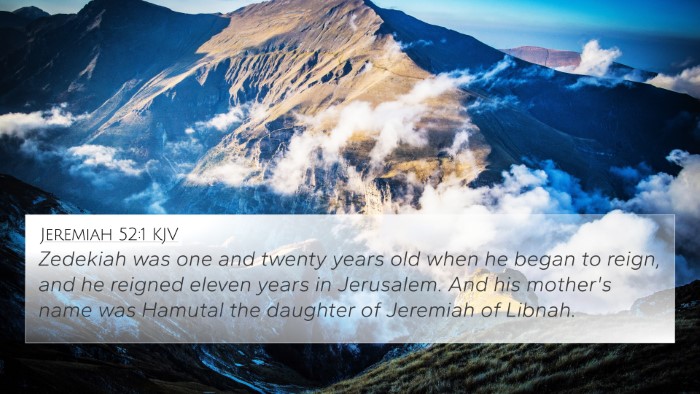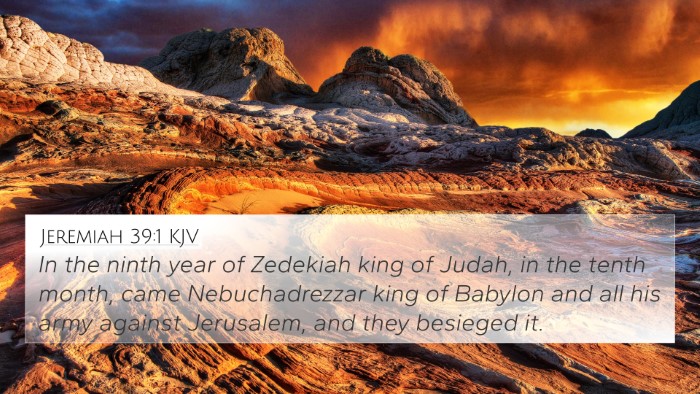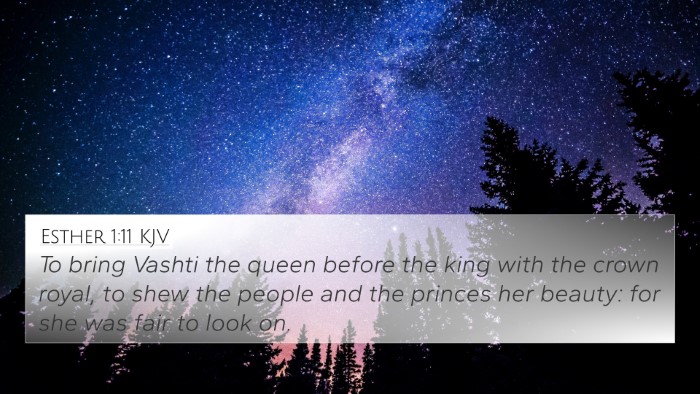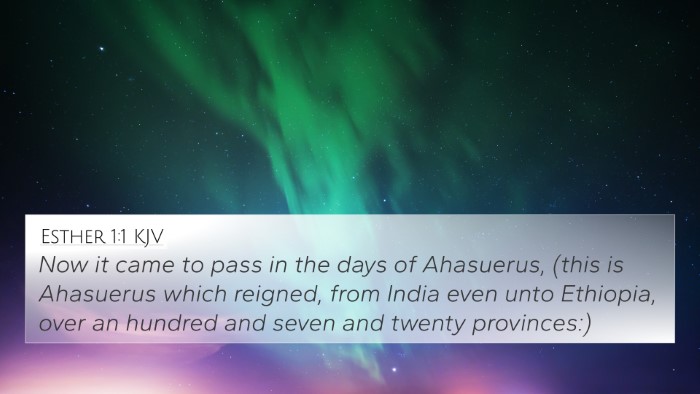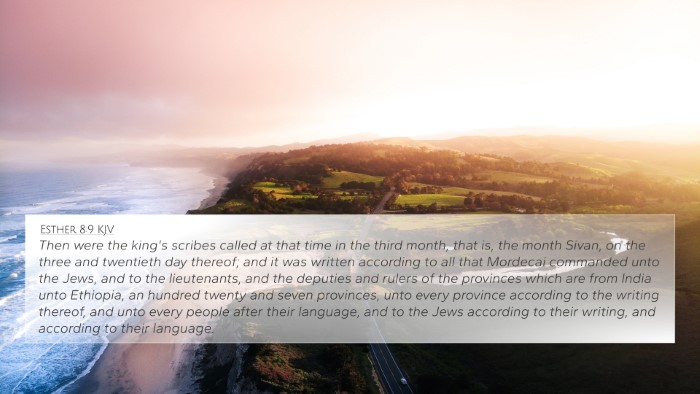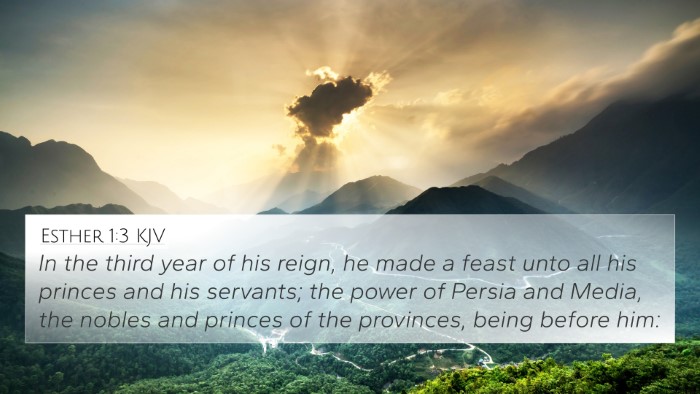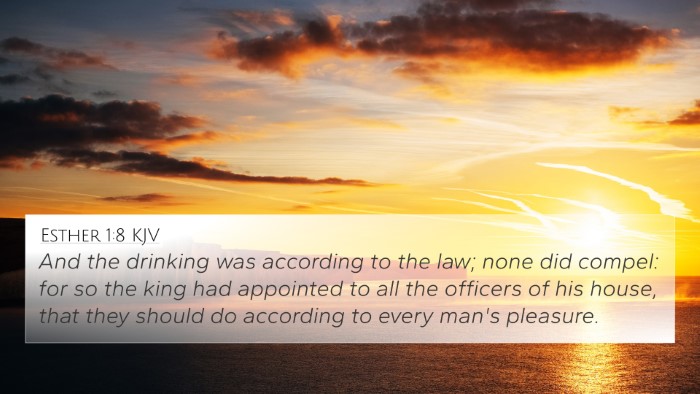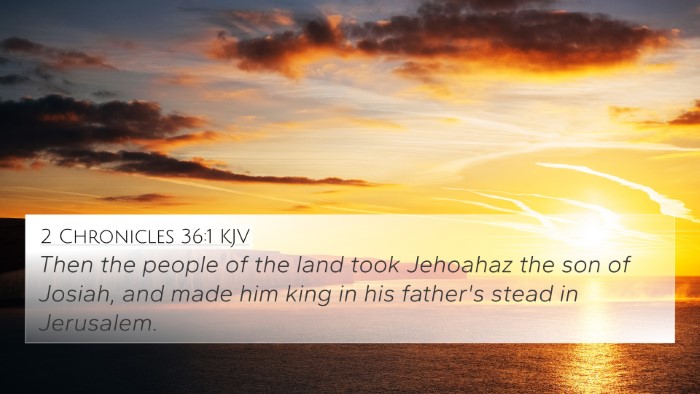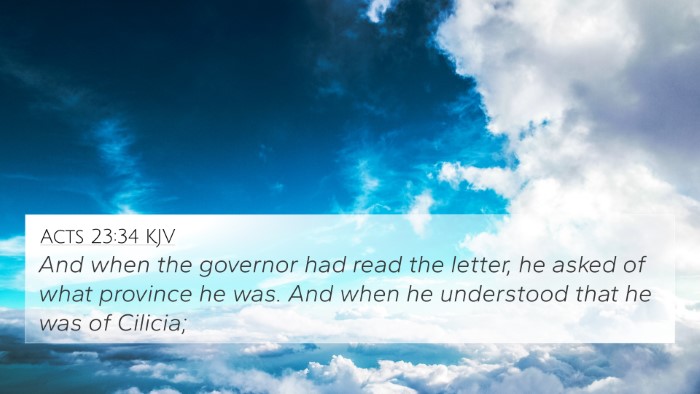Understanding Ezra 2:1
Ezra 2:1 provides a powerful glimpse into the remnant of Israel returning from exile. This verse states: "Now these are the children of the province that went up out of the captivity, of those which had been carried away, whom Nebuchadnezzar the king of Babylon had carried away unto Babylon, and came again unto Jerusalem and Judah, every one unto his city." Below, we explore its meaning and context through insights from Matthew Henry, Albert Barnes, and Adam Clarke, emphasizing cross-references and deeper theological connections.
Context of Ezra 2:1
The book of Ezra details the return of the Jewish exiles from Babylon to Jerusalem, emphasizing restoration and fulfillment of prophecy. Ezra 2:1 marks the beginning of this significant event, highlighting a list of those who returned, which signifies not just a physical journey, but also a spiritual renewal. The return from Babylonian captivity is seen as a fulfillment of God’s promise and prophecy, reflecting the themes of hope and redemption throughout Scripture.
Significance from Commentaries
Matthew Henry
Matthew Henry emphasizes the importance of the returnees being identified. He points out that the list serves to confirm the faithfulness of God in keeping His promises to restore Israel. Each name symbolizes a personal story of struggle and hope. The act of returning signifies a reclaiming of identity and heritage, deeply rooted in God’s covenant with His people.
Albert Barnes
Albert Barnes provides insight into the sociopolitical context of the return. He highlights that this return was not merely a personal pilgrimage but a communal effort. Barnes notes how this gathering is a metonymy for the restoration of the nation as a whole, illustrating that individual returns contribute to a greater national revival. The list of names also serves as a historical record, which was crucial for establishing claims to land and property, as well as for priestly lineage.
Adam Clarke
Adam Clarke also discusses the list aspect and points out that the names represent specific families and their attachments to the land of Judah. He relates the return to the overarching theme of God’s providence and justice, emphasizing that despite captivity, God's plans for His people remain intact. Clarke’s analysis showcases God's sovereignty in orchestrating events for the ultimate return of His chosen people.
Thematic Connections and Cross-References
Ezra 2:1 resonates with several important biblical themes and can be cross-referenced with various verses, which enhance our understanding of the narrative and its significance:
- Jeremiah 29:10 - This verse speaks to the prophecy of the return from Babylon, confirming God's plans to bring His people back after seventy years of exile.
- Isaiah 44:28 - Identifies Cyrus as the shepherd who would facilitate the return, linking prophecy and fulfillment.
- Nehemiah 1:3 - Highlights the mourning of those in Jerusalem, paralleling the emotions tied to the exile and return.
- Zechariah 1:16 - God assures His people of His intention to return them to their land, echoing the themes in Ezra.
- Psalm 126:1-3 - A reflection on the joy of returning to Zion, emphasizing the emotional and spiritual renewal upon their return.
- Ezra 1:1-4 - The proclamation of Cyrus that initiated the return provides context and illustrates divine orchestration.
- Haggai 1:8 - Calls the people to build the house of the Lord, asserting the importance of their return and its responsibilities.
Applications and Lessons
The historical narrative of Ezra 2:1 conveys profound lessons for contemporary believers. It reminds us of God’s unwavering faithfulness, the importance of community in spiritual journeys, and the significance of reclaiming one's heritage. Each individual’s return symbolizes a step toward collective restoration, urging modern readers to reflect on their spiritual journeys and communal identities.
Conclusion
In sum, Ezra 2:1 encapsulates a pivotal transitional moment for the Israelites, marking their return from exile and re-establishing their identity as God’s chosen people. Insights from esteemed biblical commentators underscore the multifaceted implications of this verse while cross-referencing with related scriptures further illuminates its significance in the larger biblical narrative. Understanding these connections enhances our grasp of God's overarching plan throughout the Scriptures.
